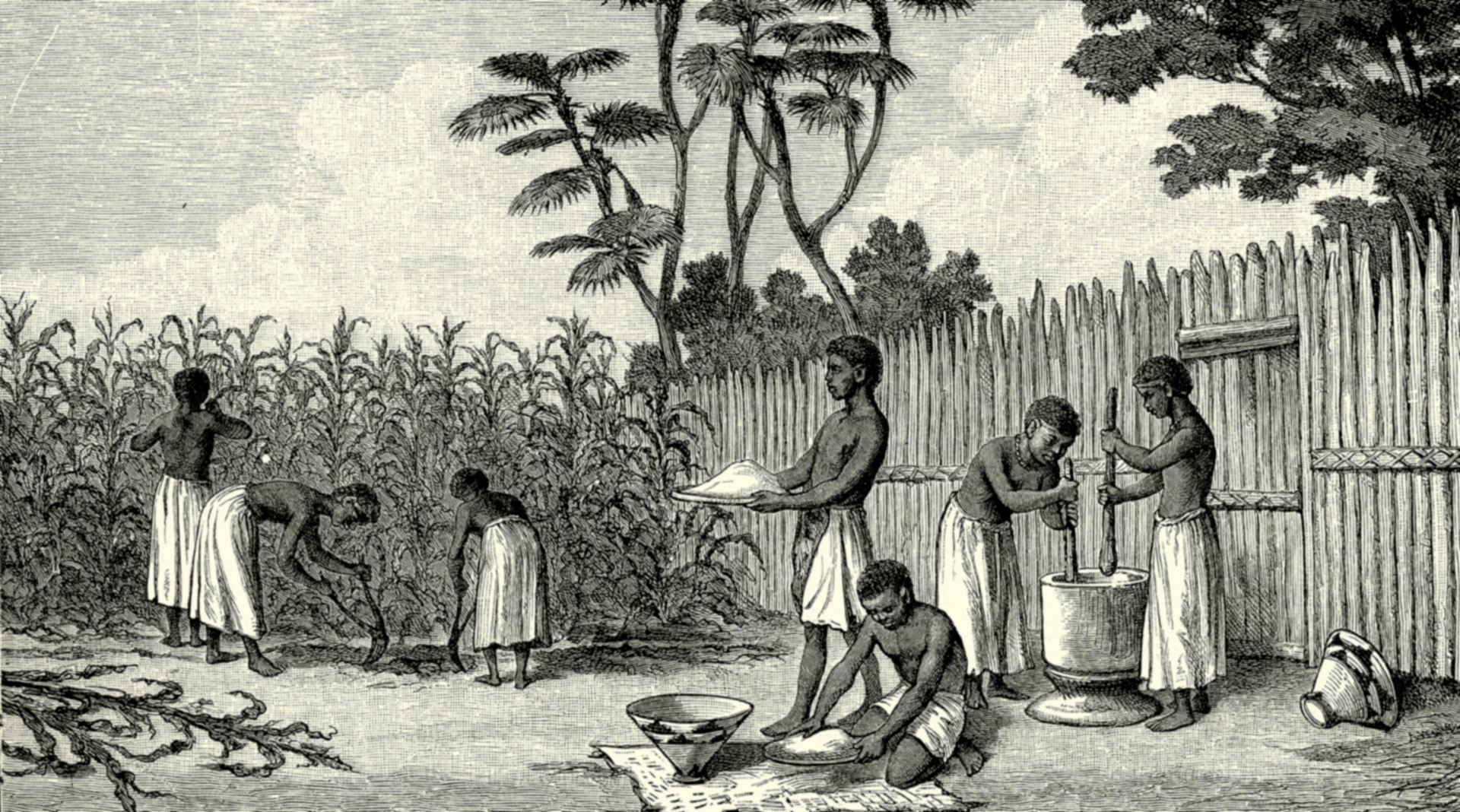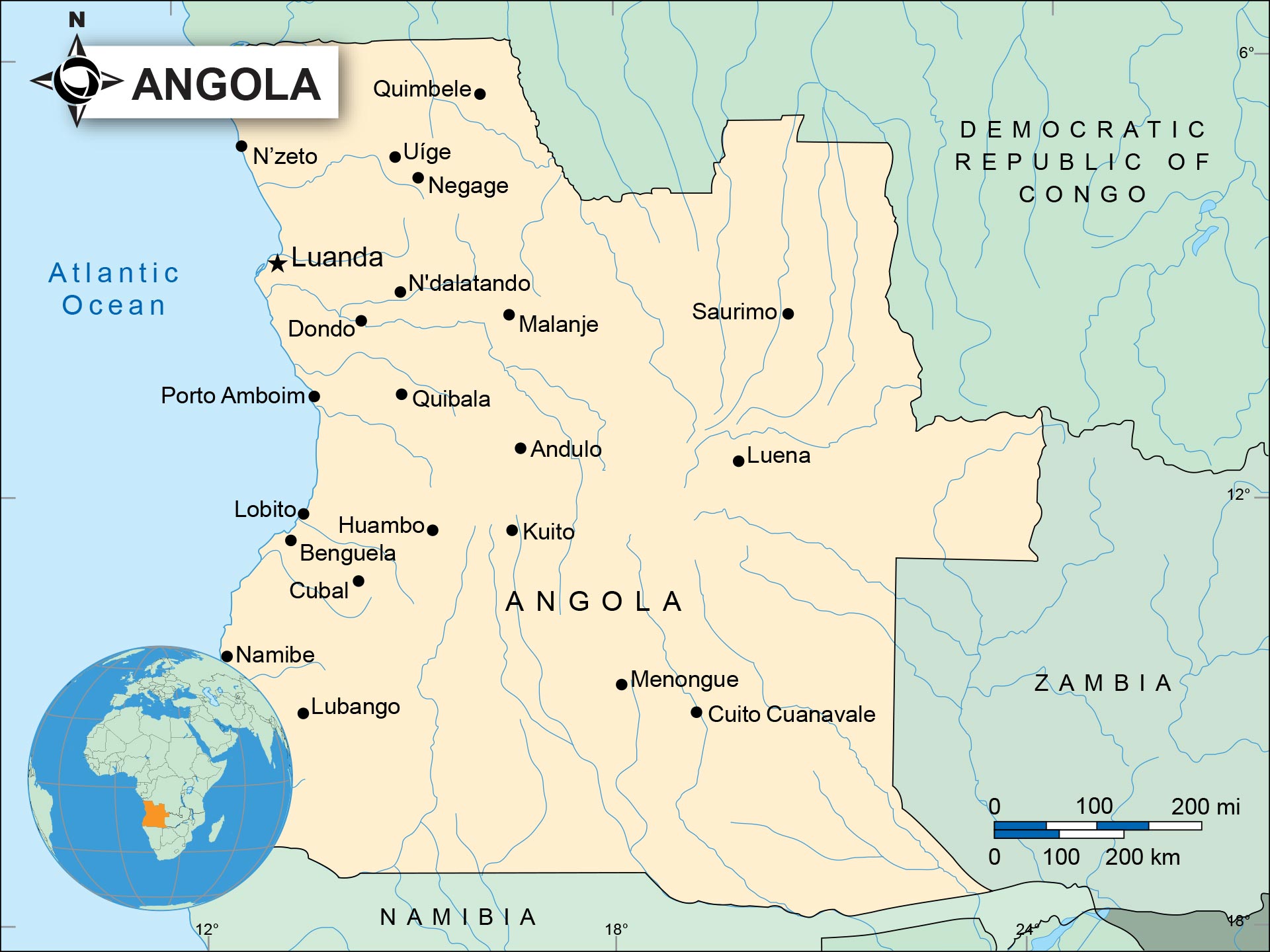


Engraving of maize cultivation and processing in Viye, Angola, 1886. It is likely that the maize plant was introduced to Africa after 1500, with the advent of cross-Atlantic trade.
"Maize Cultivation in Angola." World History: The Modern Era, ABC-CLIO, 2018, worldhistory.abc-clio.com/Search/Display/1943580. Accessed 12 Oct. 2018.
Angolans generally have a friendly, joyful, and generous nature. They like to eat, celebrate, dance, and sing. People in cities tend to be more outspoken than those in rural areas. Many Angolans have an interest in all things Western, and some worry that Angola's own traditions are being replaced. Rural Angolans tend to be more attached to traditions than their urban compatriots.
During the war years, people lived in fear and deprivation. Many rural Angolans fled their homes in the country, leaving their possessions behind them, to move to urban areas. There they struggled in a different and sometimes hostile environment. Because of these hardships, Angolans tend to live in the present: tomorrow might not bring the simple joys of today's moments, and if the day brings sadness, it will be forgotten tomorrow.
"Angola: General Attitudes." CultureGrams Online Edition, ProQuest, 2018, online.culturegrams.com/world/world_country_sections.php?cid=200&cn=Angola&sname=General_Attitudes&snid=6. Accessed 12 October 2018.

"Political Map." World History: The Modern Era, ABC-CLIO, 2018, worldhistory.abc-clio.com/Search/Display/311337. Accessed 12 Oct. 2018.

"Infographic of Angola." CultureGrams Online Edition, ProQuest, 2018, online.culturegrams.com/world/world_popup_infographic.php?scountryname=Angola&id=&refername=&type=World. Accessed 12 October 2018.